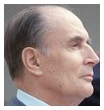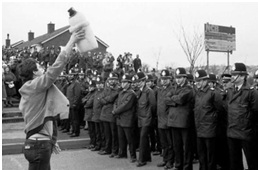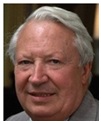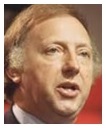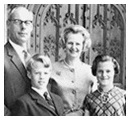|
 |
|
 |
|
|
||
Margaret Thatcher Leadership
Margaret Thatcher (1925-2013)
British prime minister 1979-92 (pictured right) who revolutionized British politics with policies that became known as “Thatcherism”. On becoming prime minister, she famously quoted the prayer of St Francis of Assisi: “where there is discord, may we bring harmony”. But things didn’t quite work out like that…
For more detail see... The British Miners' Strike 1984-5 in the History Highlights section.
Why was she a great leader?
1. Revolutionary She was a radical who changed Britain from a more relaxed, community minded society to a more aggressive one based on
Her philosophy was based upon the ideas of people like Adam Smith (pictured right) Milton Friedman (pictured right below) and Friedrich Hayek. She once said “there is no such thing” as society, only individuals and families with responsibility for first themselves and then other people. So she:
Popular capitalism:
2. Tough (and sometimes tender) She was totally single-minded, iron willed and ruthless in achieving her aims (see point 3). She also planned ahead. Her toughness was seen in her:
Her hatred of unions was shown by controversially calling them the “the enemy within”. But she was also capable of great kindness to her staff, and her feminine charm often won people over. François Mitterrand, the French president (pictured right, described her as having the mouth of the movie star, Marilyn Monroe (pictured right below) and the eyes of the cruel Roman Emperor, Caligula! 3. Courage She always fought for her principles, Her courage was particularly evident after the bombing of her Brighton hotel by the IRA during the Conservative Party Conference in 1984, which nearly killed her. The next day she made a defiant speech against terrorism. 4. Pragmatic Thatcher (pictured right in 1979) was not as dogmatic as her opponents thought, being prepared to adapt her beliefs to the realities of politics and public opinion She didn’t dismantle:
She knew these policies would be hugely unpopular. She also delayed a confrontation with the miners (pictured right during the 1984-5 strike) until she was strong enough to fight them. Despite her hatred of the IRA (the Irish terrorist group), she was in 1985 the first person to give the Irish government a say in the government of Northern Ireland. Her downfall was caused by losing touch with the common people and dogmatically sticking to her hated policy of a poll tax (with rich and poor paying the same). The turning point was her victory in the Falklands War that persuaded her she could make better decisions on her own.
5. Determination To become the first woman prime minister was a tremendous achievement particularly in a male dominated Conservative Party. She nearly gave up politics after her rejection as Conservative candidate for Orpington in Kent, but she persevered with great determination and self-confidence. When faced with rising unemployment in 1980, she stuck to her economic policy of high interest rates and cuts in government spending to reduce inflation. “There is no alternative”, she said. This is why her biographer, Hugo Young, said that her greatest strength was that unpopularity didn't bother her.
6. Learning She constantly learned from her experience, particularly:
She realized that, to prevent his failure to keep electricity supplies going, she would have to build up coal stocks (as she did for the 1984-5 miners' strike). She also hired consultants to lower her voice and make her image more appealing.
7. Energy, planning and intellect She absorbed facts very quickly and had incredible stamina, being able to survive on only three or four hours sleep. Her normal day started at 6 am and finished at 2 or 3 am the next morning. She was never complacent and left nothing to chance (as shown by her planning and preparation for the miners' strike in 1984-5, see point 6). 8. Luck Her election as prime minister was helped by the unpopularity of the prime minister, Jim Callaghan, and his Labour government, during the 1978-9 winter of strikes These strikes were called the “Winter of Discontent” (Callaghan is pictured right during it). The victorious Falklands War in 1982 turned her overnight from villain (unemployment then
was over 3 million) to heroine. She was also saved by:
9. Hope (with hatred) Thatcher destroyed many people’s lives, and she was hated as much as she was loved, particularly by the miners. One ex-miner suggested a t-shirt slogan to celebrate her death: “Thatcher's in hell – she's only been there a few hours and she's already closed down the
furnaces”. But she also got British people believing in themselves again after the UK had become known as the “sick man of Europe” in the 1970’s. Her economic policies (particularly the anti- trade union laws) laid the foundation of Britain’s economic success under Tony Blair, pictured right, who admired her greatly. 10. Family She was greatly supported and influenced by her husband, Denis, and father, a grocer and devout Christian, who taught her the importance of moral principles. “I just owe almost everything to my father”, she said But her obsession with work damaged her relationship with her children, Carol and
Mark, who were sent to boarding school and had a full-time nanny. Shown right (courtesy of the Margaret Thatcher Foundation) are pictures with her father (above) and family (below).
Key quotes on leadership The lady’s not for turning. Every prime minister needs a Willie (referring to her deputy, Willie Whitelaw). I favour an approach to statecraft that embraces principles as long as it is not stifled by them. Power is like being a lady. If you have to tell people you are, you aren’t. I am extraordinarily patient, provided I get my own way in the end.
Key quotes on society There is no such thing [as society]. There are individual men and women and there are families, and no government can do anything except through people and people look to themselves first. It is our duty to look after ourselves and then also to help look after our neighbour and life is a reciprocal business and people have got the entitlements too much in mind without the obligations
Key quotes on money Pennies do not come from heaven. They have to be earned here on earth. No one would remember the Good Samaritan if he’d only had good intentions; he had money as well.
Key quote on influencing people Don't follow the crowd, let the crowd follow you.
Key quote on success Disciplining yourself to do what you know is right and important, although difficult, is the high road to pride, self-esteem and personal satisfaction. |
|
|
||
|
|
||
| Copyright © wisdomtowin.com 2025 All Rights Reserved | ||
|






